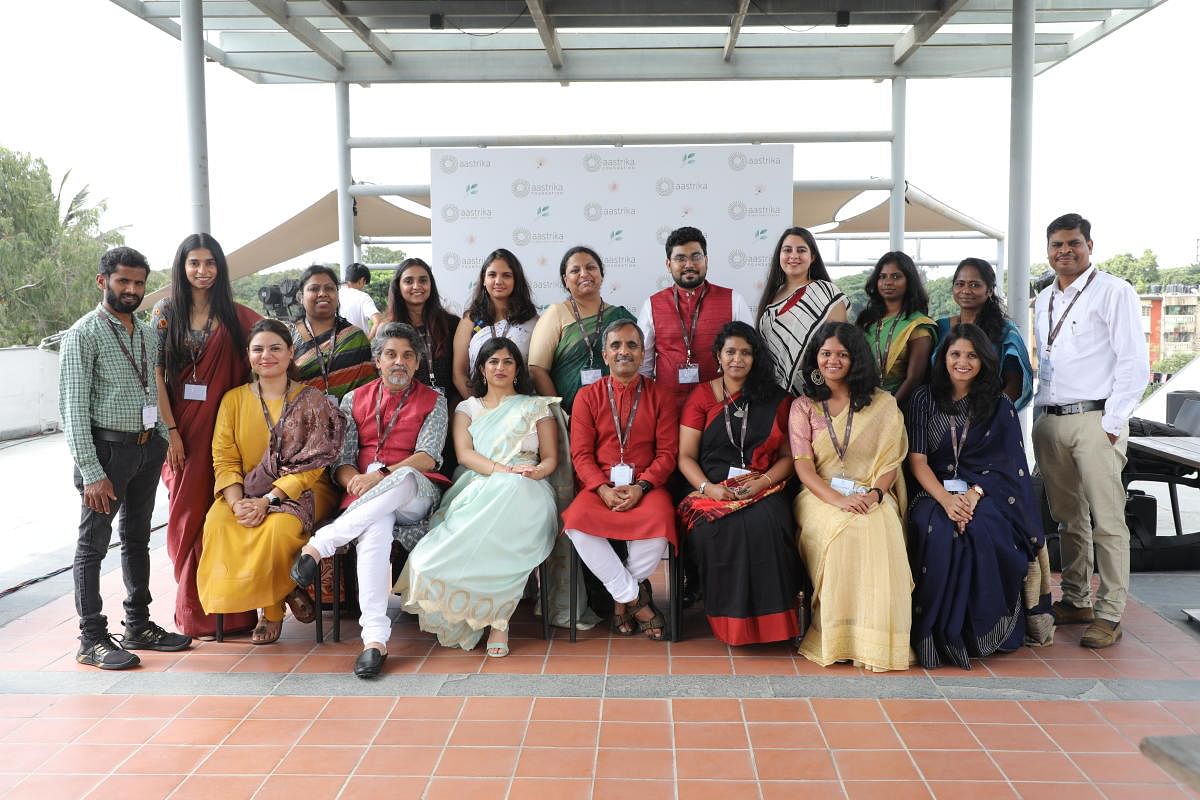
In a bid to improve maternal healthcare in India, a Bengaluru-based foundation is giving a big push to midwifery through awareness and training programmes.
Aastrika Foundation is addressing two challenges — widely prevalent disrespect towards mothers, and poor quality of care in institutions.
Entrepreneur Janhavi Nilekani started the foundation in 2019 following her pregnancy experience in Bengaluru. She was “shocked” by the poor quality of healthcare services available, Janhavi, who is the daughter of philanthropists Rohini and Nandan Nilekani, recalls. She believes there are two major problems with maternal care in institutions — the ‘too little too late’ approach, and the ‘too much too soon’ approach.
The former means that pregnant women either don’t have access to a healthcare facility, or the facility is under-staffed and the nurses aren’t skilled. “Which is why India’s maternal mortality rates remain high,” explains Janhavi. On the other hand, the ‘too much too soon’ implies excessive interventions in the maternal centre. “This phenomenon is more true in the private market but also in large sections of public healthcare. For example, the rate of caesarean (deliveries) should be between 10% and 19% but across private hospitals in south India, the caesarean rate is 80%. The rate of unnecessary surgeries is jumping fast,” she adds.
The foundation, thus, launched Aastrika Sphere in 2020. It is a free digital platform to help pre-service midwifery students learn essential skills, and in-service midwives to upskill. It has 122 hours of content and nearly 12,000 users.
Expanding to the private sector, the foundation launched Aastrika Midwifery Centre at Vasavi Hospital, Kumaraswamy Layout, in 2021. “We’ve had some good success. There have been 75 births till date,” Srinivas Seshadri, director (technology and strategy) at the foundation, shares.
They are also supporting midwifery training institutes, such as funding the National Midwifery Training Institute at the VaniVilas Women and Children Hospital, Kalasipalya. “The first course at this institute is set to take off soon. And in the next 18 to 24 months, state-level institutes will also be up and running,” he adds.
Janhavi feels the demand for respectful maternity care should also come from expecting mothers, especially in the private sector. “We currently have a situation where well-educated, wealthy women aren’t questioning the care they receive and that is leading to poor maternity care. It’s important for women to challenge the system and ask for better healthcare,” she adds.
Look up aastrika.org for details